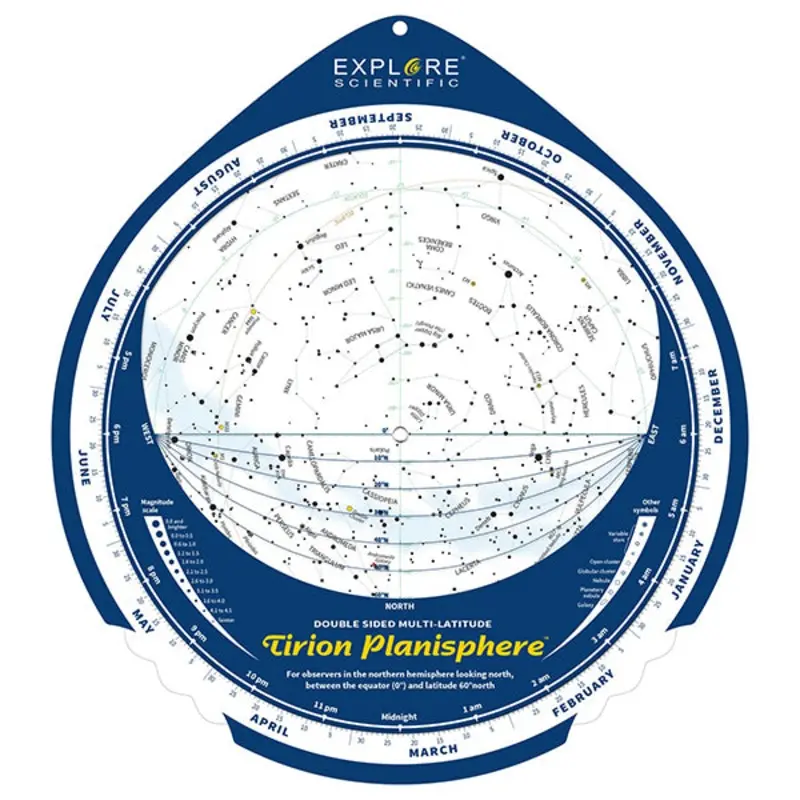 Sale!
Sale! This is a Tirion Double-Sided Multi-Latitude Planisphere.Best for anyone in Latitudes:0-60 Degrees North.The Tirion double-sided planisphere can help guide your explorations of the night sky throughout the year. Created by noted celestial cartographer Wil
This is a Tirion Double-Sided Multi-Latitude Planisphere.
The Tirion double-sided planisphere can help guide your explorations of the night sky throughout the year. Created by noted celestial cartographer Wil Tirion, this planisphere works over a vast range of northern hemisphere latitudes and uses a double-sided design to minimize distortion. It is made of durable plastic and the celestial dials are secured with no-corrosion brass rivets.
Generallythere is a lot of distortionon planispheres. That is why Tirion created this as a double-sided planisphere. It keeps the distortion to a minimum. Constellations outside the equator (the green circle) are shown with less distortion on the other side of this planisphere.
Turn the upper sheet so that the appropriate local time and the date match. If the clock is set to daylight saving time, subtract one hour from the time on your watch. This side of the planisphere then shows the stars and constellations that are visible above the southern horizon and the other side shows what is visible above the northern horizon. On both sides a number of different horizon lines are shown, labeled with the latitude. Choose the horizon line that is closest to your latitude. So, if you live at latitude 37N, the best choice is the horizon line for 40N. If you live on 32N, use the horizon line for 30N. Notice that the horizon lines on this side (looking South) run from 60N (top) to 0 (bottom), while on the reverse side it is the other way around.
The brown dashed line is the ecliptic, the yearly path of the sun amongst the stars. The bright planets (Mercury, Venus, Mars, Jupiter, and Saturn) are always near the line, so if you see a bright ‘star’ close to the ecliptic which is not shown on the map, you can be sure it is one of these planets.
The faint blue band on the maps is the Milky Way. On the southern map (this side) you can see two small clouds; the SMC (Small Magellanic Cloud) and the LMC (Large Magellanic Cloud). These are small galaxies that are considered to be satellites of our own Milky Way Galaxy.
Tirions planisphere also uses symbols to identify select stars and deep sky objects like galaxies, nebulae, and clusters.
Based in The Netherlands, Tirion has been crafting star maps since the 1970s and became a professional uranographer shortly after the publication of his highly regarded Sky Atlas 2000.0 in 1981.
Cost: $25
Free Shipping
We offer free shipping on orders over $30. Please check the free - shipping eligibility at checkout.
Delivery Time:
It usually takes [3-5] business days for standard shipping. Please note that this is an estimated time frame and may be affected by local holidays, and unforeseen circumstances.
Reviews
There are no reviews yet.